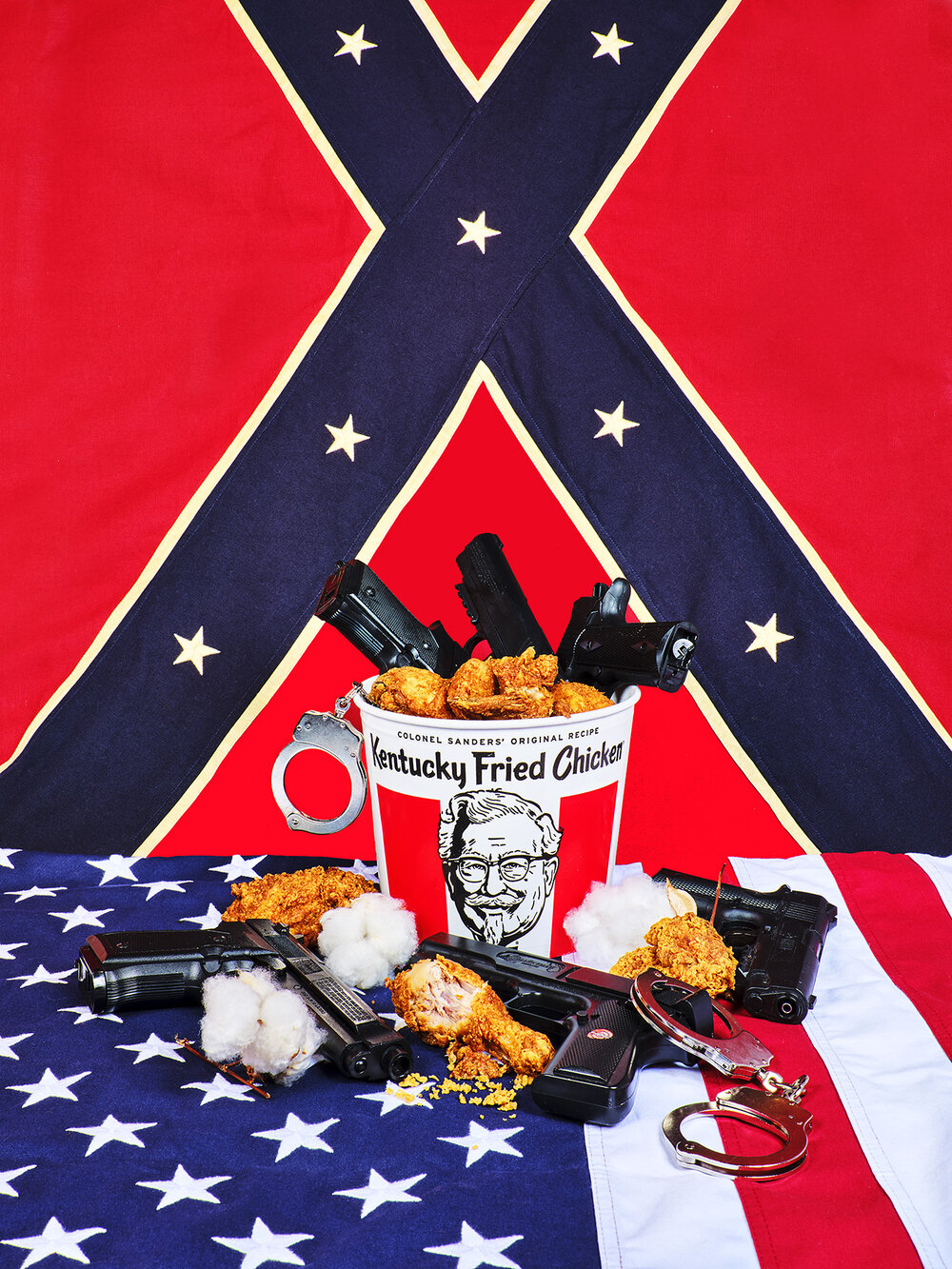Family Dinner: Finger Clickin’ GOOD
Archival Inkjet Print – 2019
As one brutally honest Southern man told the National Conference of Charities and Corrections in 1883, “Before the war, we owned the negroes…But these convicts: we don’t own ‘em. One dies, get another.”
The Corrections Corporation of America, better known as CoreCivic, operates today as a publicly traded $1.8 billion private prison corporation. It was founded in 1983 (four months after President Ronald Reagan announced the “War on Drugs) by three individuals: Thomas Beasley, Robert Crants and Terrell Don Hutto. Hutto, prior to founding CoreCivic, ran a cotton plantation in Texas where mostly black convicts picked cotton for no pay. Prior to peaking the interest of his CoreCivic co-founders, his shrewd acumen for generating profit from his plantation attracted the state of Arkansas. The state hired him to run their entire prison system which at the time was made entirely of plantations that he ran at a profit for the state. Much like today, profit rather than rehabilitation was the foundation of early prisons and this conquest for capital spurred the motivations of the country’s most wealthy entities and individuals – particularly following the Civil War.
19 years prior to the aforementioned tenacious trio founding what has now become the largest private corrections company in the country, entrepreneur Jack Massey acquired Kentucky Fried Chicken from its founder Harland Sanders for $2 million. Massey rapidly expanded the company as he grew it to approximately 3,500 franchises and sold it for $239 million just seven years later. With this immense profit, he would go on to greatly impact the future of the United States. First, he founded the Hospital Corporation of America, which would become the largest chain of for-profit hospitals in the country; and second, he would contribute large initial investments to the founding of CoreCivic – creating a perpetually eerie link between private prisons and the world’s second largest restaurant chain. With Family Dinner: Finger Clickin’ GOOD, Nic Brierre Aziz utilizes some of the United States’ most prominent cultural fabrics to create a familial facade that stimulates thought around intention and interconnectivity. Through the confluence of Kentucky Fried Chicken’s now world renowned motto and CoreCivic’s company mission to “serve the public good”, this labyrinthine assemblage additionally questions the paradoxical “goodness” of the country and the inner war that persists within the Western world’s consciousness.

